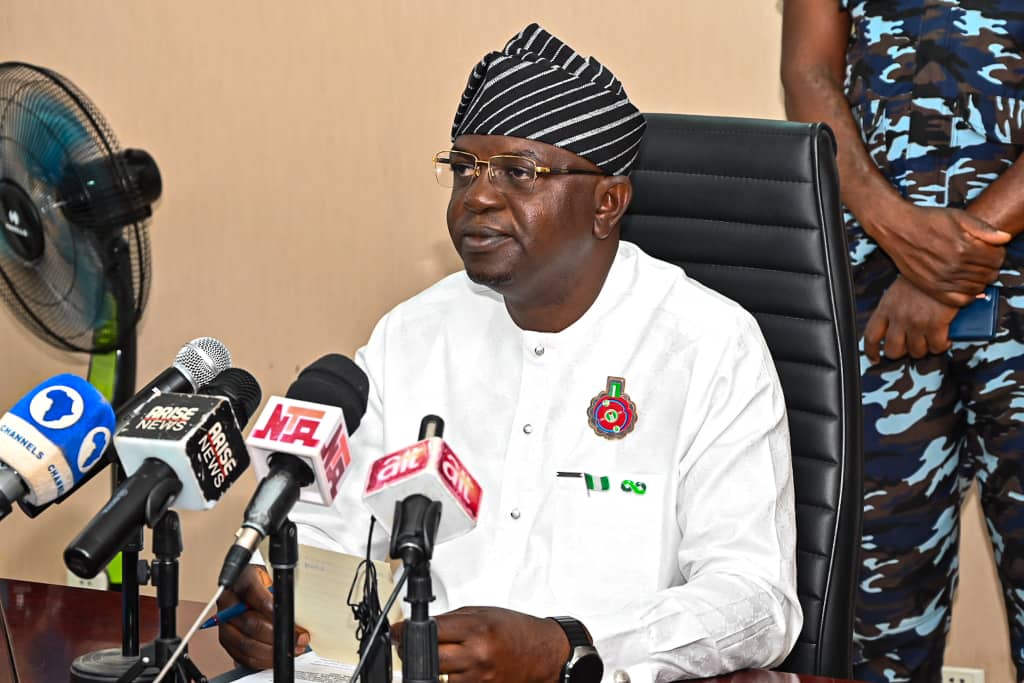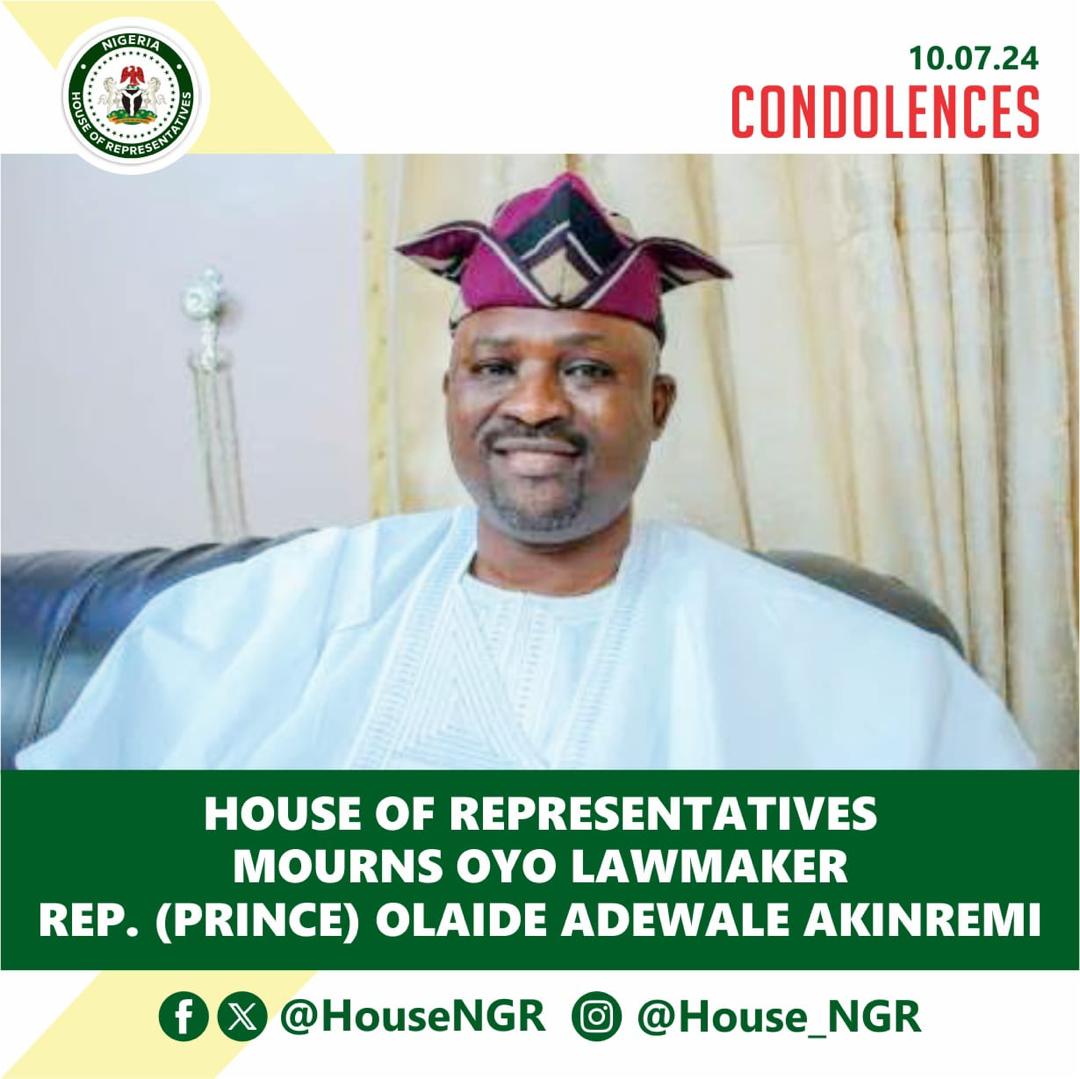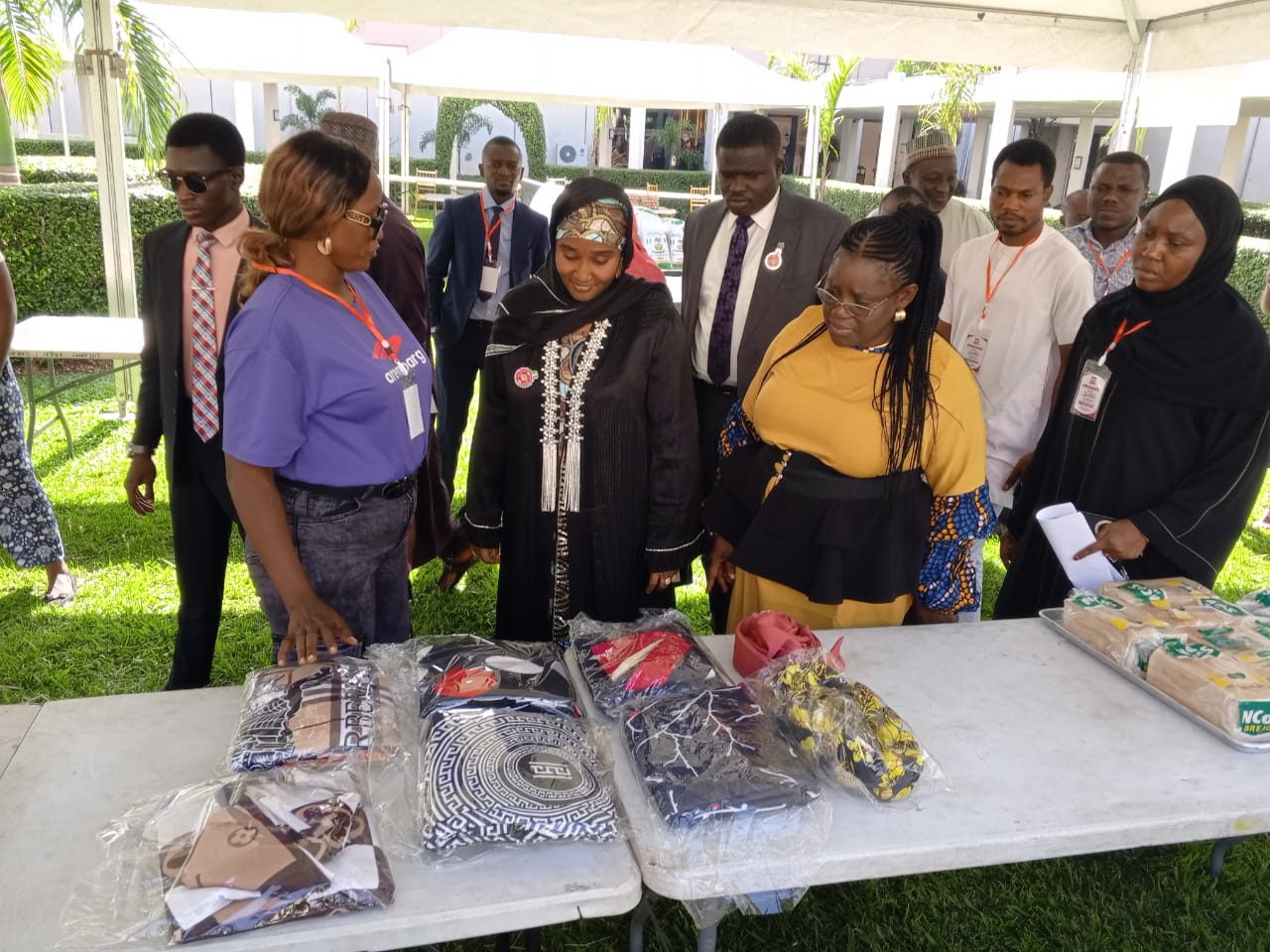Open Defecation: A Threat to Public Health, Compromises Water Sources – Water Resources Minister Calls for Increased Awareness, Usage of Sanitation Facility

By Fatima Saka
In a bid to eradicate open defecation in Nigeria by 2025, the Honourable Minister of Water Resources and Sanitation, Engr. Prof. Joseph Terlumun Utsev, FNSE, underscored the critical public health and environmental impacts of the practice.
He emphasized that open defecation compromises water sources, spreads diseases, and diminishes the quality of life for the citizens.
The minister highlighted the persistent challenge of raising awareness about the importance of using sanitation facilities.
He noted that many communities are still not fully informed about the necessity of proper toilet use for ensuring widespread sanitation.
The minister made this emphasizes, during a ministerial press briefing in Abuja on Friday ahead of the 5th anniversary of the “Clean Nigeria: Use the Toilet” campaign and the launch of Nigeria’s strategic plan,

Prof. Utsev stressed the need for comprehensive community engagement. “The focus should not only be on the number of toilets available but on ensuring people use them effectively,” he stated.
Progress and Achievements
Prof. Utsev reported notable progress, mentioning that 135 local government areas (LGAs) have been certified open defecation-free (ODF).
He emphasized that this milestone is not just about infrastructure but community awareness and behavior change.
Despite these successes, the minister acknowledged that meeting the 2025 target remains challenging. “We must identify and re-strategize key elements to increase advocacy and awareness,” he added.
Government Initiatives and Strategic Efforts
The minister outlined several initiatives launched by the Federal Government to bridge gaps in sanitation. These include the declaration of a State of Emergency in the WASH (Water, Sanitation, and Hygiene) sector, the development of a National Action Plan, and programs like PEWASH (Partnership for Expanded Water, Sanitation, and Hygiene) and SURWASH (Sustainable Urban and Rural Water Supply, Sanitation, and Hygiene). Additionally, the “Clean Nigeria: Use the Toilet” campaign, bolstered by Presidential Executive Order 009, remains pivotal in achieving an open defecation-free Nigeria.
Engagement of Stakeholders
Prof. Utsev called on state governors, local government chairpersons, civil society organizations, the private sector, development partners, and the media to actively participate in the campaign.
He highlighted that ending open defecation would significantly improve public health, boost productivity, and uphold the dignity and safety of all Nigerians, particularly women, girls, and vulnerable groups.
Upcoming 2024 World Toilet Day and Strategic Plan Launch
The minister announced that the 2024 World Toilet Day, themed “Sanitation for Peace,” would feature various events to commemorate progress and bolster efforts toward ending open defecation. Key activities include:
1. Launch of the Clean Nigeria Campaign Strategic Plan by Vice President at the State House Conference Centre, Abuja (November 19, 2024).
2. A joint commemoration event by the Federal Ministry of Environment and the Kano State Government.
3. Celebration of ODF Communities in Kwali Area Council by the FCT Administration in collaboration with partners.
4. Launch of State ODF Roadmaps and celebration of two ODF LGAs in Borno State.
5. Recognition of the Anambra State Governor’s Wife and the Head of the Civil Service of the Federation as WASH Ambassadors.
6. Celebration of Ikenne LGA as ODF in Ogun State.
Prof. Utsev concluded by emphasizing the significance of this year’s campaign. “Every step towards ending open defecation enhances public health, productivity, and community dignity,” he said, calling for stronger advocacy and support at all levels.





